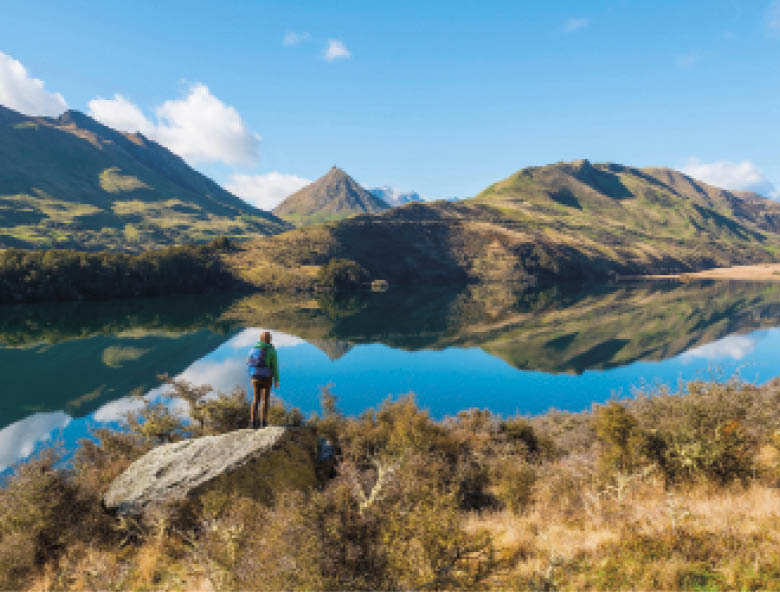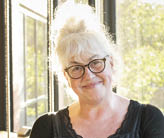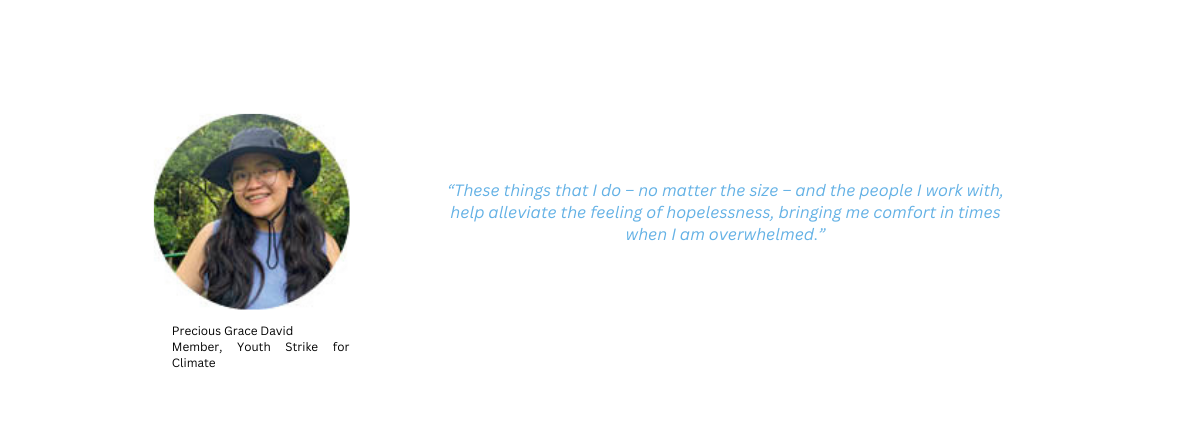Two and a half years ago, an international team of researchers conducted the first large-scale investigation of climate anxiety in young people, surveying 10,000 people aged16 to 25 years in 10 countries across the globe.
The results, published in the The Lancet Planetary Health journal, were eye-opening. Nearly 60% of participants reported that they were ‘very’ or ‘extremely’ worried about climate change, with this rising to above 90% in countries already experiencing the impacts first-hand, such as the Philippines. Globally, more than half of respondents described feeling sad, anxious, angry, powerless, helpless or guilty, and more than 45% said their feelings negatively affected their daily life.
There is constant fear and distress with the climate change impacts that my country is confronted with.
The study shed critical light on the growing and global extent of ‘eco-anxiety’, an umbrella term which encompasses the complex stress, anxiety and depression that can arise from extreme worry about the environment. Eco-anxiety can range from mild stress through to clinical depression, with the American Psychological Association defining the term as “chronic fear of environmental doom”.
Liz Willetts, the coordinator of IUCN’s CEM Human Health and Ecosystem Management Thematic Group, said that newly coined terms such as eco-anxiety and ‘solastalgia’ (melancholia or homesickness caused by environmental change) are “telling indicators” of how large-scale environmental damage is increasingly causing negative mental and emotional conditions.
“There is constant fear and distress with the climate change impacts that my country is confronted with,” says Precious Grace David, a member of Youth Strike for Climate Philippines. Classes in schools are currently suspended there because of extreme heat.



